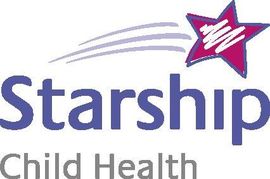Central Auckland > Public Hospital Services > Starship Child Health >
Starship Paediatric Blood & Cancer Centre
Public Service, Oncology, Haematology, Paediatrics
Investigations
There are some investigations that your child may require during their stay – certainly at the time when we are trying to establish a diagnosis, and later to establish whether the treatment is working. Some of the more common procedures are listed below:
Blood Tests
This is when staff take a sample of your child's blood, usually via a finger prick. Looking at your child's blood allows us to see what support they might need, for example a blood transfusion or supplements. Blood tests also help us to diagnose what is wrong with your child and identify the best way to treat them.
Bone Marrow Aspirate
Under anaesthetic one of our doctors will place a needle into a large bone where there is lots of bone marrow (where blood cells are made). They are able to draw back some of the marrow and that is sent to the laboratory. It will be looked at see what kind of cells are in there – most types of leukaemia can be diagnosed from this and some solid tumours if they have spread to this area.
Lumbar Puncture
Under anaesthetic one of our doctors will place a needle between two vertebrae in the back to get some cerebrospinal fluid (fluid that is all around the brain and spinal cord). Leukaemia can be present in the cerebrospinal fluid so it is tested to see what cells it has in it. Throughout treatment for leukaemia and some other forms of childhood cancer, lumbar punctures are done to give medications into the cerebrospinal fluid and to check for any disease.
Scans
There are many types of scans that we use to see how big a child’s tumour is and if it has spread. These include ultrasound scans, CT scans, MRI scans, Bone scans, MiBG scans as well as normal X-rays. If your child needs one of these, the procedure will be discussed with you and any other important considerations. Sometimes children need to drink a special fluid first (referred to as contrast), other times they have to fast. Some children will need sedation or a general anaesthetic for the scan.
Once the diagnosis is established you will meet with various specialists to talk about what treatment options are available and the benefits and risks of those treatments as well as what the diagnosis means. It is a good idea to have a support person with you for these consultations as a lot of information is often given and it can be hard to take it all in. It is a good idea to write down a list of questions you might want to ask.

